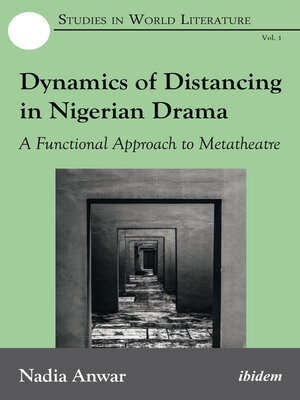Dynamics of Distancing in Nigerian Drama
ebook ∣ A Functional Approach to Metatheatre · Studies in World Literature
By Nadia Anwar

Sign up to save your library
With an OverDrive account, you can save your favorite libraries for at-a-glance information about availability. Find out more about OverDrive accounts.
Find this title in Libby, the library reading app by OverDrive.



Search for a digital library with this title
Title found at these libraries:
| Library Name | Distance |
|---|---|
| Loading... |
Nadia Anwar presents a compelling reading framework for the study and analysis of selected post-independence Nigerian dramas, using the conceptual parameters of metatheatre, a theatrical strategy which foregrounds the process of play-making by breaking the dramatic illusion. She argues that distancing, as a function of metatheatre, creates a balanced theatrical experience and environment in terms of the emotive and cognitive levels of reception of a particular performance. Anwar's book is the first in-depth study of the concept of metatheatre with reference to Nigerian drama including Wole Soyinka's Death and the King's Horseman (1975) and King Baabu (2002), Ola Rotimi's Kurunmi (1971) and Hopes of the Living Dead (1988), Femi Osofisan's The Chattering and the Song (1977) and Women of Owu (2006), Esiaba Irobi's Hangmen Also Die (1989), and Stella 'Dia Oyedepo's A Play That Was Never to Be (1998). The perspectives of Bertolt Brecht (1936), Thomas J. Scheff (1963), and other theoreticians of dramatic distancing and metatheatre are used in the analyses and, where required, challenged through appropriate contextual and theoretical adjustments. The book is the first attempt to illustrate how Brechtian approach to the display and generation of emotions can be revised through Scheff's model of emotional balance.







